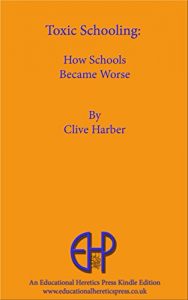Unease with schooling is not new: ”We are faced by the paradoxical fact that education has become one of the chief obstacles to intelligence and freedom of thought” wrote Bertrand Russell in On Education 1926.
In the late nineteenth and early twentieth centuries a variety of those concerned with education – Edmond Holmes, A.S.Neill, Rudolf Steiner, Margaret McMillan, Charlotte Mason, Susan Isaacs and Bertrand Russell were critical of schooling and went on to suggest more personalised, democratic and humane forms of education as alternatives. However, in the 1960’s and 1970’s, a period of social and cultural upheaval in the West and political change caused by decolonisation in many developing countries, a number of writers again began to question and critique the relevance and benevolence of schooling.
This book examines the main ideas in a dozen or so key texts on schooling produced roughly during the period 1960 to 1980. For reasons of space, a selection had to be but there were other important books produced during the period that are not considered here. No doubt my own history and preferences have played a role in this selection as I was a pupil, student teacher, teacher and teacher educator during this period and read most of the texts at the time. The writers selected are Edward Blishen, Paulo Freire, Paul Goodman, James Hemming, John Holt, Ivan Illich, Philip Jackson, George Leonard, Soren Hansen and Jasper Jensen, Julius Nyerere, Neil Postman and Charles Weingartner, Everett Reimer, and Carl Rogers.
This book then examines the evidence of the extent, if any, these critiques had on changing and improving the nature of schooling provided today, or whether in many ways the situation is now actually worse.
Clive Harber
is Professor of International Education at the University of Birmingham
In the late nineteenth and early twentieth centuries a variety of those concerned with education – Edmond Holmes, A.S.Neill, Rudolf Steiner, Margaret McMillan, Charlotte Mason, Susan Isaacs and Bertrand Russell were critical of schooling and went on to suggest more personalised, democratic and humane forms of education as alternatives. However, in the 1960’s and 1970’s, a period of social and cultural upheaval in the West and political change caused by decolonisation in many developing countries, a number of writers again began to question and critique the relevance and benevolence of schooling.
This book examines the main ideas in a dozen or so key texts on schooling produced roughly during the period 1960 to 1980. For reasons of space, a selection had to be but there were other important books produced during the period that are not considered here. No doubt my own history and preferences have played a role in this selection as I was a pupil, student teacher, teacher and teacher educator during this period and read most of the texts at the time. The writers selected are Edward Blishen, Paulo Freire, Paul Goodman, James Hemming, John Holt, Ivan Illich, Philip Jackson, George Leonard, Soren Hansen and Jasper Jensen, Julius Nyerere, Neil Postman and Charles Weingartner, Everett Reimer, and Carl Rogers.
This book then examines the evidence of the extent, if any, these critiques had on changing and improving the nature of schooling provided today, or whether in many ways the situation is now actually worse.
Clive Harber
is Professor of International Education at the University of Birmingham






